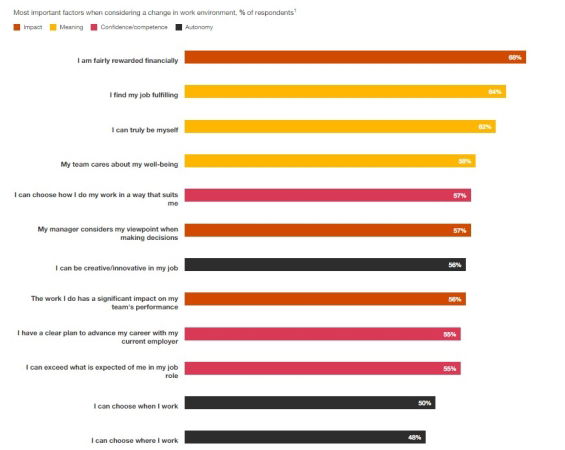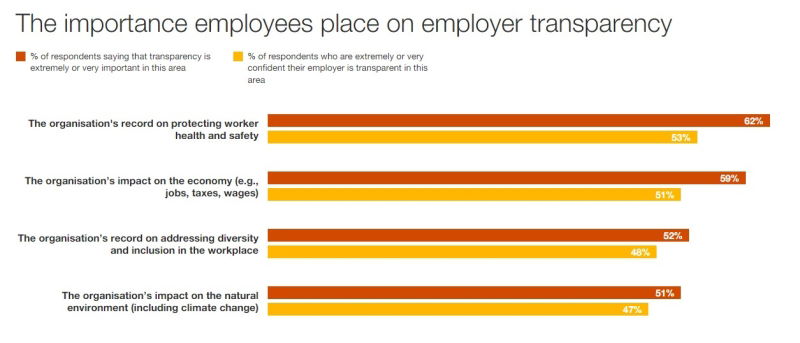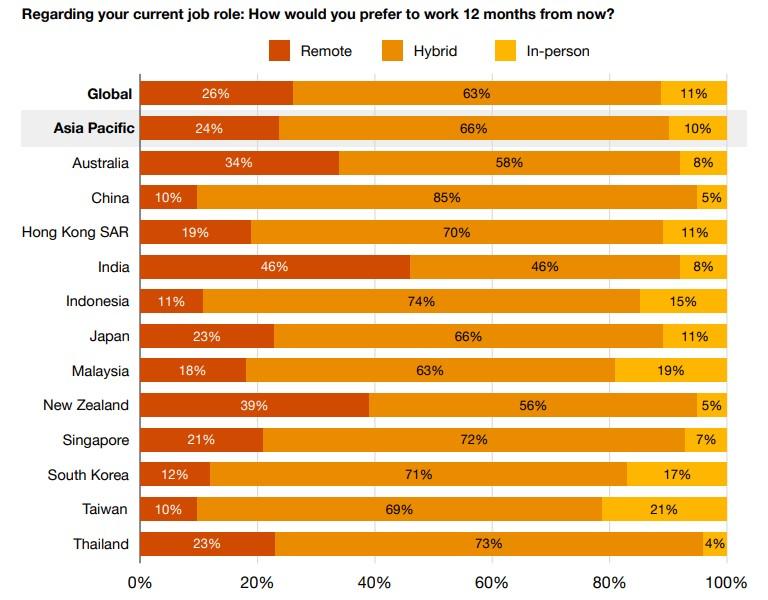share on
On the other hand, of those whose jobs do not require specialist training, only 19% were likely to ask for a raise, according to a survey.
According to PwC's latest 'Asia Pacific Workforce Hopes and Fears Survey 2022', employees with a specialisation are in high demand in Asia Pacific (APAC) – and they know it.
In fact, those who say their job requires specialist training are significantly more likely to ask for a raise (44%). They were also more likely to ask for a promotion (41%) and recommend their employer as a place to work (43%).
On the other hand, of those whose jobs do not require special training, only 19% were likely to ask for a raise, and 17% were likely to ask for a promotion. The percentage of employees likely to recommend their employers as a place to work was almost halved compared to their peers, at 21%.
This latest survey of 18,000 APAC-based employees shows that the balance of power between workers and their bosses is shifting.
In the next 12 months, around one-third of survey respondents plan to ask for a raise and the same proportion say they are likely to ask for a promotion. One in five intend to switch to a new employer, the survey further revealed.
However, the study revealed a potential disparity – less than half (45%) are upskilling their workers. As the study suggests, "too often, companies see upskilling as a short-term fix for plugging immediate skills gaps rather than a way to develop a strategically competitive workforce". In APAC, 42% are worried their employer will not teach them the technology skills they need.
Wellbeing prevails, monetary benefits speak, and a sense of fulfilment rules
It is no secret that the last two years with the COVID-19 pandemic have posed certain physical and mental health challenges for workforces around the world. In turn, supporting employees; wellbeing has since become a significant focus for many companies. Interestingly, it’s the third most popular strategy in APAC for addressing skills shortages, according to the survey.
Yet, in absolute terms, the rate of support is still relatively low, with just 36% of employees saying their employer supports their physical and mental wellbeing.
Apart from the above, the survey also looked into the most important factors when considering a change in work environment. The number one most important factor, receiving the most responses at 68%, was being fairly rewarded financially.
Second, 64% of employees indicated the importance of finding their job fulfilling; and finally, not far behind in third spot, 62% of employees also placed importance on the ability to truly be their selves.

The study further suggests that one of the most powerful ways to nurture meaning and fulfillment is by creating a clear link between what people do everyday and societal purpose.
Listing an example, in relation to environmental, social, and governance (ESG) matters, a significant number of employees feel their company isn’t doing enough to help them navigate these critical issues:
- two-thirds (66%) feel they lack support for making ethical decision-making,
- three-quarters (73%) say they lack support for minimising their company’s impact on the environment, and
- over 60% have no support when it comes to protecting company or customer data.
In the same vein, this highlights the need for employees to be able to trust their company. Such trust requires transparency – however, the study has revealed a transparency gap among APAC employees. Most significantly, 62% of respondents indicated that transparency was particularly important when it comes to the organisation's record on protecting worker and health safety. However, only 53% are confident their employers are transparent in that regard.

Trust in a hybrid working world
Per the survey findings, two-thirds of employees who can work remotely prefer hybrid work, with a similar proportion holding the opinion that their employers agree. There is, however, significant variability across the region:

As evident from the above findings, a new world will prompt leaders to adapt and evolve – at speed – to address increasing employee expectations towards trust in a hybrid world, meaningful work, authenticity, and fair compensation.
This will, undoubtedly, breed a new set of leaders who bring with them new skillsets, mindsets, and leadership approach.
ALSO READ: HR's guide to strengthening workplace culture
Lead image / PwC Hopes and Fears 2022 Survey
Follow us on Telegram and on Instagram @humanresourcesonline for all the latest HR and manpower news from around the region!
share on


